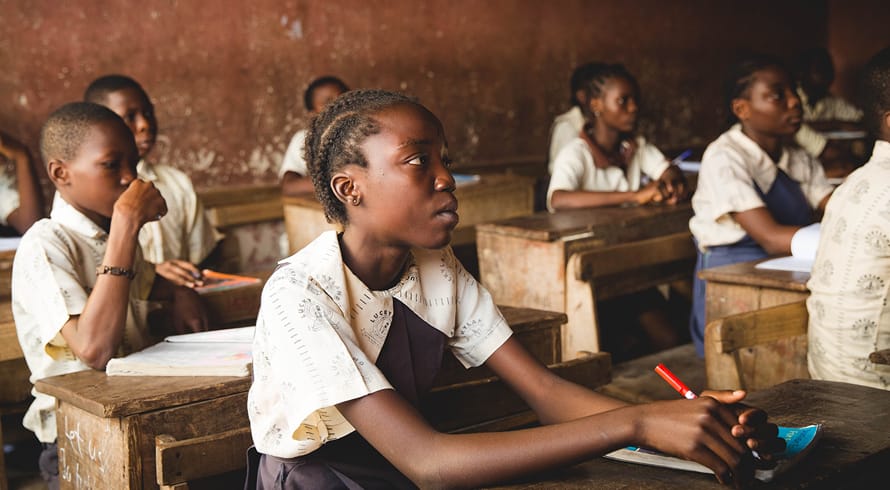ANC deputy president Cyril Ramaphosa on key issues affecting the public and private sector
“We are living in interesting times, some say difficult times but for me, in hopeful times.” This is according to ANC Deputy President Cyril Ramaphosa, who was talking at a client business briefing at Cliffe Dekker Hofmeyr business law firm this week.
Ramaphosa said at the business briefing that the Government’s National Development Plan (NDP) was the overarching plan for the country. The document details specifically what is ailing the country and what could be done to fix it.
“The aim of the NDP is to get the country moving forward. It includes a plan to create 11 million jobs by 2030 and reduce poverty substantially by reducing inequality and creating a country of substantially healthier people. The plan also aims to get Government departments working effectively and to reduce corruption. Essentially, our aim is to restructure the economy and get more of our citizens to be active participants in our economy,” Ramaphosa explained.
“However,” he said, “The NDP should not be seen as a document cast in stone, we welcome engagement and debate on the plan.”
Ramaphosa noted that there had been some valid criticism of the NDP. For instance, the National Union of Metalworkers said the plan should contain a more radical approach to dealing with ownership and as such ownership patterns should be changed completely. Another criticism is that the SACP felt the NDP should not be used as a divisive football and that State leaders should play a key role in the country’s planning.
“Our democracy is robust and at times noisy but in the end it yields the best results because it creates platforms for dialogue. In this regard a forthcoming summit on economic policy amongst the Tripartite Alliance will debate the NDP in full,” he said.
“The NDP charts a way towards a future that will get all of us to play a key role in developing South Africa. Importantly, the role that business can play is in giving effect to the Plan,” he said.
Ramaphosa said the NDP does not work in opposition to other Government plans, such as the infrastructure plan which is being rolled out at present. Trillions of rands will be spent on the infrastructure plan roll out and this will unlock employment opportunities.
“In terms of education outcomes, we need to remember that apartheid education was the epicentre of the apartheid system,” says Ramaphosa.
“The Bantu Education Act was meant to blunt the capabilities of black people and that is where the degeneration of education started. We are now dealing with the bitter fruits of what was planted in South Africa at that time. Teachers were ill trained under the Bantu Education system.. Education matters and our systems need to produce talented and skilled young people. When a person is educated it levels the playing field and people who have an education can become economically active.
“Another key challenge is corruption. Corrupt acts will be brought to book and we know both local and provincial government are rife with corruption and this will be rooted out. Our determination and resolve to root out corruption has doubled. We should also note that there is corruption in both the private and public sector and so corruption must be dealt with at all levels, in business as well as government,” he said.
Ramaphosa said of the economic outlook, post-Mangaung, that the Government favoured a mixed-economy approach where the state and the private sector each play key roles in the economy.
“We need to look at how we can create an environment conducive to business with less hassle and less regulation. The private sector also needs to play its part in helping to develop the country by investing, developing the skills of its workers, transforming the companies and facilitating the transfer of ownership to the previously disadvantaged majority.
“Our approach to the mineral resources sector is to use the instruments of taxation and royalties in this regard and not to go the nationalisation route. We need to show investors in this industry how we can move beyond colonialism and towards industrialisation and that there are great opportunities here for investment.
“We are seeking closer interaction between the public and private sector and realise we need to build up trust between government and business. We need better dialogue between both parties so that we can better understand each other. This is critical,” he said.
“We need a compact between labour, government and business that outlines a common understanding of where we want to take this country,” Ramaphosa noted.
“South African citizens need to be much more active and informed as to what each of us can do improve our country. In this regard Bobby Godsell and James Motlatsi have just launched The Active Citizen’s Charter which outlines how every citizen of South Africa can make the country a better place. The Charter includes committing four hours per month to an activity in education, crime prevention, job creation, environmental protection or other form of active citizenship.
“Government should lead campaigns such as the anti-drug campaign and violence against women and business should be involved in these campaigns. In this regard I applaud Cliffe Dekker Hofmeyr for the work they do for the Adopt a School Foundation. They complete transaction documents and agreements for this Foundation on a pro bono basis and their input makes a great difference,” he said.
With regard to BRICS, Ramaphosa said, “I think that South Africa is a country that boxes above its weight. It is both a great thing and a burden. We are the smallest country in the BRICS and we box well above our weight there. We are hoping the development bank in the BRICS region will be based in South Africa. Our country has a responsibility for helping to improve the continent of Africa and we need to play our part.”
Ramaphosa ended by saying that South Africa remains a divided country.
“We need to increase national cohesion and build our nation. It is no longer Cry the Beloved Country, it is now Strive the Beloved Country.”
Cliffe Dekker Hofmeyr CEO Brent Williams concluded the briefing with an agreement that every South African needs to work together to set the country on the path to growth, “It is time for all of us to roll up our sleeves and do what we can to make our country a better place.”
The information and material published on this website is provided for general purposes only and does not constitute legal advice. We make every effort to ensure that the content is updated regularly and to offer the most current and accurate information. Please consult one of our lawyers on any specific legal problem or matter. We accept no responsibility for any loss or damage, whether direct or consequential, which may arise from reliance on the information contained in these pages. Please refer to our full terms and conditions. Copyright © 2026 Cliffe Dekker Hofmeyr. All rights reserved. For permission to reproduce an article or publication, please contact us cliffedekkerhofmeyr@cdhlegal.com.
Subscribe
We support our clients’ strategic and operational needs by offering innovative, integrated and high quality thought leadership. To stay up to date on the latest legal developments that may potentially impact your business, subscribe to our alerts, seminar and webinar invitations.
Subscribe




